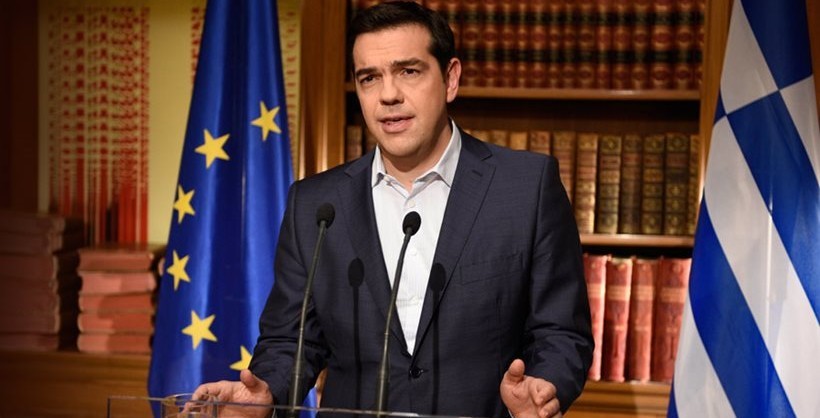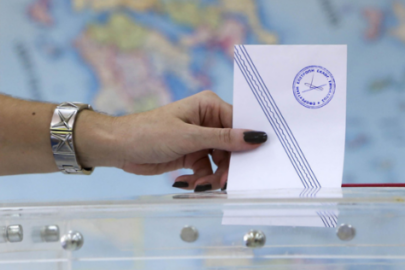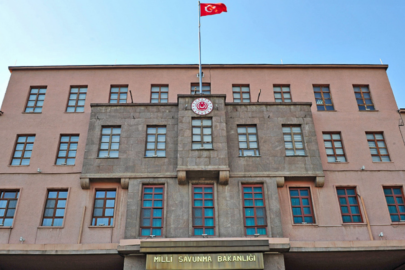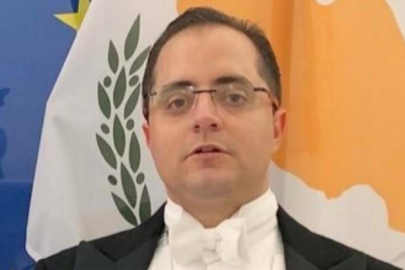Greek Radical Left Coalition (SYRIZA) Prime Minister Alexis Tsipras appeared in an interview on private ANT1. Asked about his government’s choice to hold a referendum on July 5, he said that he had no choice but to respect the popular mandate he was given during the elections on January 25. “The answer is yes or no to a viable (debt) solution,” he said, refuting that the July 5 referendum is about Greece remaining in the euro.
Anchorwoman Maria Houkli grilled Tsipras on his decision to host a referendum on a set of proposals that are no longer on the table. He spoke of an “ultimatum” being given to Greece. “We faced a crucial historic decision. We could either accept everything and tell the people that we betrayed their hopes and our promises or go to a referendum,” he said.
On debt viability
He reiterated the need for the restructuring of the Greek debt, pointing out that the creditors had refused to do this. He said that the IMF on Thursday had said that Greek debt needed a 20% haircut of debt and debt relief, adding that this was not what was said to the Greek side when they were on the negotiating table. He pointed out the difficulty in having to negotiate with three different sets of creditors.
On disagreeing to creditors proposals
Not once did he think of doing what his predecessors had done by agreeing to another 5-month bailout and pretending to be a victor of sorts even though the country would continue being in the same predicament.
On need for a referendum
He said that the referendum is also a “negotiation tool” that has already brought around the softened stand of creditors. My decision to call a referendum prompted the IMF to release its debt sustainability analysis, argues Tsipras.
On capital controls and images at ATMs
Asked about the images of pensioners seeking their pensions outside locked banks, he said this was the fault of the ECB stating that such images were a “shame for Europe” but also admitted, when pushed by Houkli, that it was a “shame for Greece.”
“This was just reaction of vengeance because the part of the institutions – especially Eurogroup – did not want to give the Greek government the right to take recourse in the diplomatic process without intervention,” he said, pointing to an “orgy of interventions” and “terrorism” of the Greek nation so that the lenders could have the result they desire in the referendum.
“Why have elections to countries that are in a program?” asked Tsipras, pointing to a lack of respect of the country’s democratic rights. “Why not just appoint technocrats to govern?”
On the safety of people’s bank accounts
Tsipras refused to respond to a question concerning a haircut to Greek deposits. “People should not be worried as a decision will be made 48 hours after the referendum,” he said. “I don’t think the (imposed) bank holiday is something pleasant but I want to explain something to viewers. In Cyprus, there was a haircut, not because there was a problem of liquidity but because banks of Cyprus didn’t have collaterals. Greek banks do have collateral.”
On the benefits of a ‘no’ vote
“The referendum is the last stop before an agreement, whatever it may be,” he said, adding that the stronger the ‘no’, the greater negotiating leverage Greece will have.
“What we are doing is a small revolution,” he said. “The higher the no, the better the agreement we will get next week. That’s our belief and that’s what we want from the referendum.” He pointed out that people have been trying to change the referendum question from the outset.
Looking at history, the most important moments have been sealed with a NO! “And this is a huge no,” he said, hoping to achieve a historic victory.
On the interpretation of “no” to euro
Tsipras does not believe that a “no” in the referendum is synonymous to a Grexit. “They choose to change the question, and morph it to get the result they want,” he said. “The Greek parliament has the sovereignty to decide on the referendum question, not other parliaments.”
On the “yes” men
“I saw the old political system against us. They all spoke: Costas Simitis, Karamanlis, Vangelis Venizelos, Samaras… Don’t they have any responsibility into the state of the country. Was I to blame for everything in just the last five months,” he said. “It is not by chance that the old system is against us.”
“I am here to make the cut, not to become one with the old system,” he said. “Do you know how many leaders came to their position with false promises and then lied?” He said that he refuses to do this.
On truth
“The truth is we want to stay in the European framework but with a viable solution (to debt problems). We don’t want to be a poor relative, or a debt colony,” he said. “An entire nation will give a battle with small supplies to prove to Europe and the world, that the view of Schaeuble that euro means cut pensions, poverty, austerity is not the case.”
Houkli refered to the images of pensioners, shortages, ATM machines of late, but he said that the previous government’s have brought the country to this state. “The battle has proven not to be easy, and there are no magic solutions,” he said. “I will do everything to make sure there is a viable solution.”
On a ‘yes’ vote
On the other hand, a ‘yes’ vote would mean a spiral of austerity and debt. He said that if this is the nation’s desire then this would be respected. “I would be the institutional guarantor so that the constitution is adhered to,” he said, but did not say that there would be new elections. He said that a referendum is not a coup (as the opposition says), but – on the contrary – gives people a say in what they want for their future.
On propaganda
“I see a calm and mature nation, but of course I see a great deal of struggle,” he said, however also said that there is no deontology over the last few days, insinuating that there was propaganda in the news. He said that only 8.33 mins were dedicated to presenting the ‘no’ protest, whreas 40.28 mins of ‘yes’ people rallying – an example of lopsided, one-sided, propaganda-styled reportage.
“At this moment we need to give people objective information to make a choice,” he said.
“Our only fear is fear,” he said, a slogan he has said many times before, pointing to the unemployed and all the others who have suffered as a result of the measures. He pointed to mass media giants who didn’t pay taxes who want to quell changes using fear.
“All I can promise is that I won’t lie to Greek citizens, I didn’t say that for 5 months and I won’t start now,” he said. “I will continue for this adventure to have a satisfactory conclusion.”

































